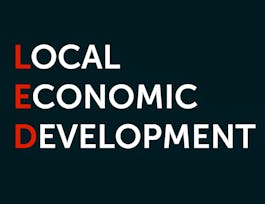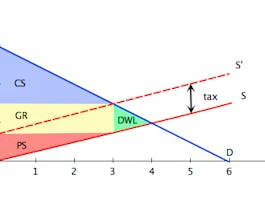- Explore
- Social Sciences
- Economics
Economics
Earn Your Degree
Most Popular Courses
Top Rated Courses
Beginner Economics Courses
Most Popular Certificates
Finish an Economics Course in Under 24 Hours
More Economics Courses
Frequently Asked Questions about Economics
Popular topics include Macroeconomics, Microeconomics, Behavioral Economics, Econometrics, Health Economics, and Environmental Economics. You’ll also find courses on international trade, energy economics, and development. Use the Popular Topics links to filter by your interests.
Explore the Beginner Economics Courses collection, including Microeconomics Principles, Local Economic Development, and Trade, Immigration and Exchange Rates in a Globalized World. These introduce core ideas like markets, trade, and development with approachable examples. You can browse more starter options directly on this page.
Learners often start with Financial Markets (Yale) and Game Theory (Stanford) from the Most Popular list. Top Rated options include Economics of Money and Banking (Columbia) and the Spanish-language Mercados financieros (Yale). Each course page shows ratings and details to help you choose.
You’ll build fundamentals in micro and macro theory, policy analysis, and understanding global economic systems. Many courses also introduce econometric and statistical analysis to interpret economic data, along with behavioral insights for real-world decision-making. These skills support roles in analysis, policy, finance, and market research.
Most courses offer a shareable electronic Course Certificate for a small fee upon completion. For deeper training, consider Specializations like the Microeconomics Principles Specialization or Trading Strategies in Emerging Markets, or explore Healthcare Marketplace for health economics. These stack multiple courses into a job-relevant credential.
No—Coursera’s economics catalog spans introductory, intermediate, and advanced courses. Beginners can start with foundational classes, while experienced learners can dive into specialized areas like banking, energy, or globalization. Check each course page for its suggested level.
Studying economics on Coursera can prepare you for a range of career opportunities in various sectors:
- Economic Analyst: Analyze economic conditions to guide business strategies and policy decisions.
- Financial Consultant: Provide advice on investments, market trends, and economic planning.
- Policy Advisor: Develop and assess public policies based on economic theories and data.
- Market Research Analyst: Study market conditions to examine potential sales of a product or service.
- Academic Researcher: Conduct research to advance understanding of economic phenomena and influence academic and practical approaches to economics.
Yes—explore Financial Markets (Yale), Economics of Money and Banking (Columbia), and The Global Financial Crisis (Yale). These courses appear across the Most Popular and More Economics sections. They’re suitable picks if you’re interested in financial systems and policy.
























































































